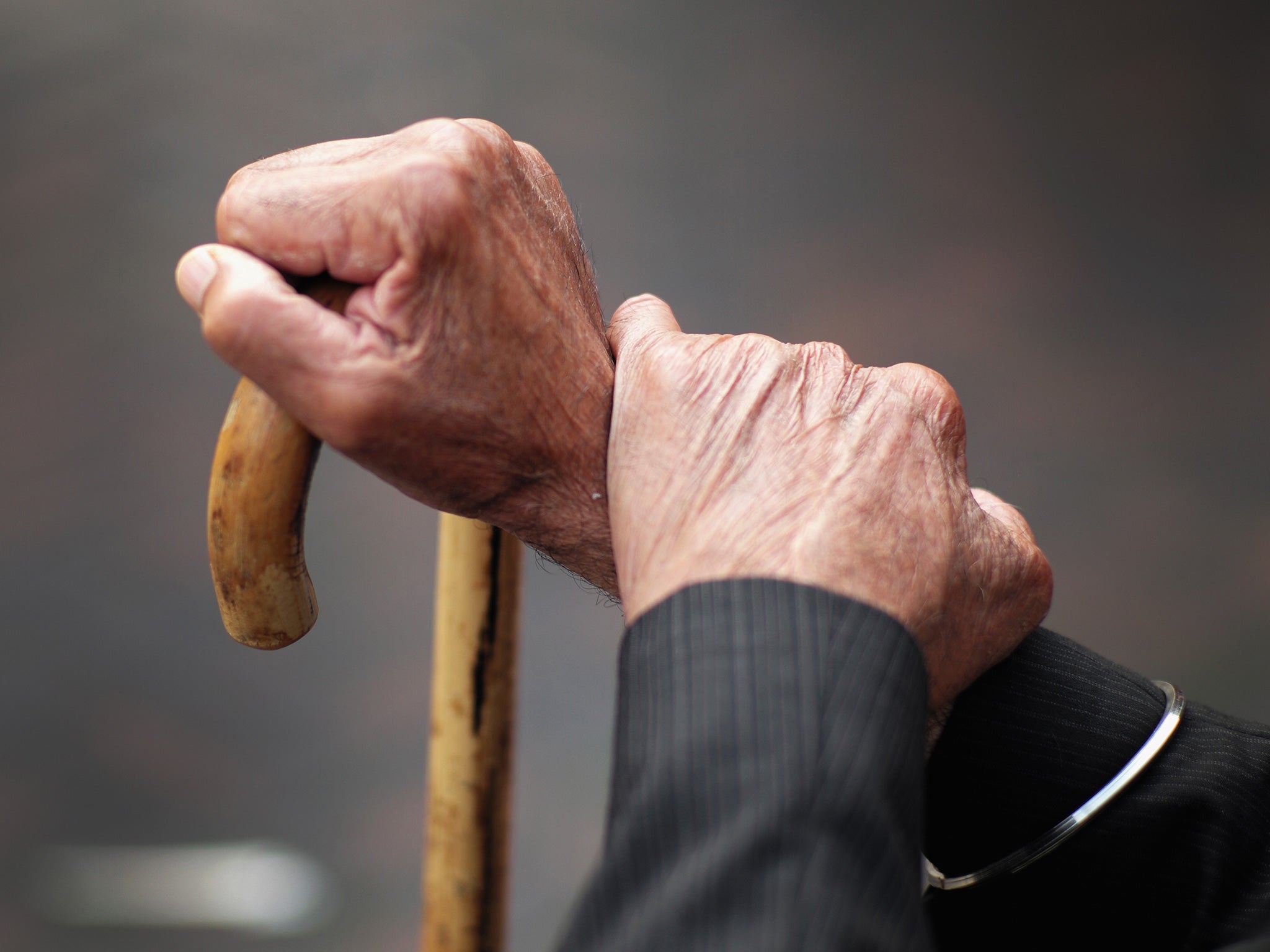LGBT people face 'devastating' discrimination in end-of-life healthcare, research warns
‘In the hospital, they thought we were sisters. I was always aware of the way people might be reacting to the fact that we were lesbians and felt less comfortable in a public ward. Being lesbian made an already traumatic situation worse. I constantly felt in general like I always had my out myself to explain my role was in her care and life’

LGBT people face “significant” and “devastating” barriers in accessing end-of-life care, research has warned.
Discrimination and lack of staff training is causing many LGBT people to feel isolated, ignored and anxious in the healthcare system. Some dying people have had to ‘come out’ over and over to new doctors and while others say their next of kin or partner was overlooked by staff due to being in a same-sex relationships.
The report Hiding Who I Am: Exposing the reality of end of life care for LGBT people, by charity Marie Curie, warns discrimination could have a “devastating impact”. It suggests issues for LGBT people in palliative care may be multifaceted as they are less likely to have children, more likely to be estranged from family networks and to have mental health issues than heterosexual patients.
The charity said a 78-year-old woman in Belfast who cared for her partner who died with dementia and cancer told them she found lack of awareness of LGBT issues compounded an already deeply distressing time.
She said: “In the hospital, they thought we were sisters. I was always aware of the way people might be reacting to the fact that we were lesbians and felt less comfortable in a public ward. Being lesbian made an already traumatic situation worse. I constantly felt in general like I always had my out myself to explain my role was in her care and life.
“I didn’t have any choice who to tell that I was in a lesbian relationship. One of the interesting things was that in hospital –no one ever asked if we were legal partners. And as we had a civil partnership, I was legally her next of kin.”
A 60-year-old man told the charity that after feeling reluctant, he finally contacted a helpline for carers for advice about his situation. When he was talking to the receptionist on the phone and revealed he was gay, he was upset by her response. He said: “. She assumed I was calling about my wife. I was trying to find any possible way of getting help and support but her reaction – well, it put me off in a way. It did make me want to just not pursue that particular avenue.
“It seemed I had to come out every day – multiple times a day sometimes – because most of the world is a heteronormative environment.”
In a foreword to the report, broadcaster and comedian Sandi Toksvig, said: “Many health and social care professionals say they treat everyone the same. This is well-intentioned. However, as this report shows… there is still a lot of work that needs to be done for all LGBT people at the end of their life.
“Prejudice and discrimination at the end of life have a devastating impact on LGBT people. At its very worst, it means someone will spend their last days feeling isolated, alone, angry and unwelcome. For those who lose a loved one, not being able to say goodbye in a respectful and peaceful environment can make the grief and their bereavement worse.”
Dr Catherine Millington-Sanders, RCGP and Marie Curie Clinical Lead for End of Life Care, said: “As this report shows, a concerning number of LGBT patients are not accessing the appropriate healthcare services as they near the end of their life for fear of discrimination – this unintended consequence is important as it means they are at risk of unmanaged symptoms and reduced ability to get the holistic care all patients and families deserve.
“We need to address this as a matter of urgency and ensure that all our patients feel comfortable accessing healthcare, and getting the message out that when they do, their holistic needs will acknowledged and treated in a sensitive and non-judgemental way. To ensure we can continue to provide the best possible care, we also desperately need more investment and resources for end of life care services in the community.”
Subscribe to Independent Premium to bookmark this article
Want to bookmark your favourite articles and stories to read or reference later? Start your Independent Premium subscription today.

Join our commenting forum
Join thought-provoking conversations, follow other Independent readers and see their replies